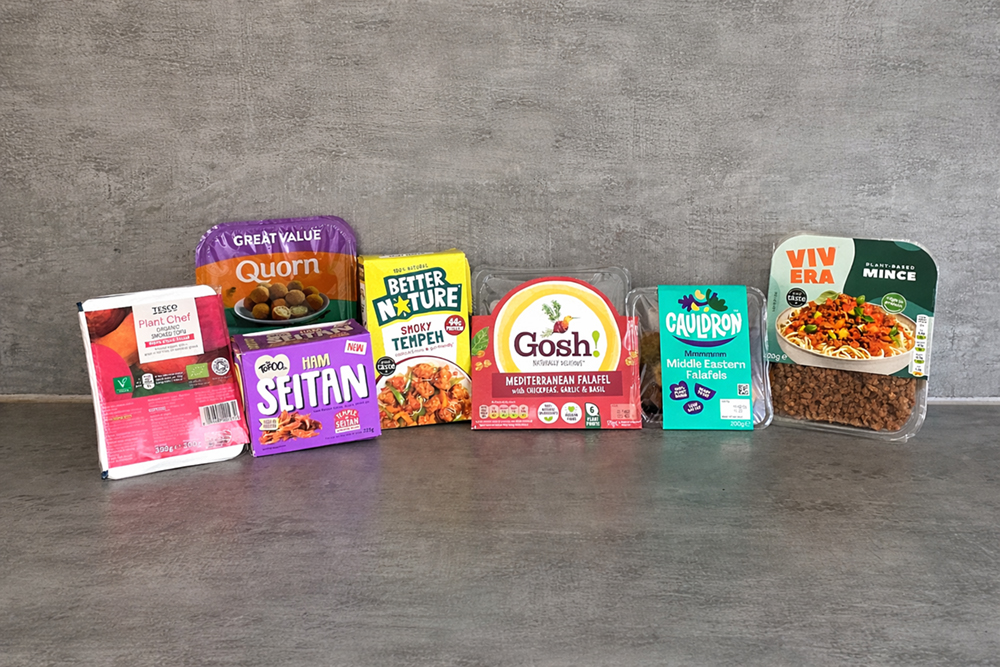

Improved extraction processes could help meet growing global demand for sustainable plant-based sources
Faba beans pack a high-protein punch, making them rich with promise as an alternative to meat and dairy sources. But the legume also has less desirable qualities, such as compounds that cause flatulence and interfere with the body’s nutrient absorption.
Now, University of Alberta research out of Canada has potentially improved on the standard processes used to capture the protein from the bean, along with starch and dietary fiber, and leave the rest behind.
The chemical-free method also uses less energy, making the process more sustainable, said Brasathe Jeganathan, who conducted the work to earn a PhD in food science and technology from the Faculty of Agricultural, Life & Environmental Sciences.
Called dry and wet fractionation, the separation methods are crucial in eventually making the bean more of a worldwide “dietary staple,” she adds.
Faba beans, also known as fava beans or broad beans, contain 22-36% protein, a benefit that could make them a viable, secure food source for a growing global population, she says.
“By 2050 we are expected to feed 9.7 billion people, with demand expected to double for animal-based protein, but we can’t completely rely on that as a sustainable source in the long run. Alternative plant sources such as faba beans have lower environmental footprints and can, at the same time, provide adequate protein.”
The legume could also help meet the growing demand for vegetarian and vegan diets, with more than 40% of Canadians actively trying to eat more plant-based food, she notes.
The protein content of the bean itself is not high enough to formulate food products with a consumer-friendly texture and taste. In addition, the presence of compounds that cause flatulence and hinder the body’s nutrient absorption limits wider consumption and acceptance of the bean. Those limitations make fractionation necessary to provide more concentrated protein from the bean to the food industry, with minimal amounts of those compounds.
By experimenting with hybrid processes involving both dry and wet fractionation and using less water and no chemicals, Jeganathan was still able to successfully isolate and extract the bean protein.
The new process also ensures that the protein remains unchanged by chemicals, preserving its potential for use in developing clean-label vegetarian food products or supplementing cereal-based staple foods.
Along with that, the proteins extracted using chemical-free methods were found to have comparable or even better functionality than the proteins extracted by traditional chemical- and energy-intensive methods, which is good news for the food processing industry, she notes.
“The important properties – such as foaming, emulsification, solubility and the ability to gel – are still there for potential applications in beverages, meat and egg substitutes, and protein powders.”
The chemical-free extraction methods also resulted in higher-quality protein – up to 94% pure – compared with other methods. Jeganathan was also able to separate out the starch and concentrate the dietary fibre from the faba bean.
These co-products would have been altered by chemical use through conventional methods and wasted as a result, she noted.
“Now they have potential to become value-added products that could be used in food applications.”
As well, the experimentation revealed that the protein is concentrated more in the external layers of the bean.
That knowledge can result in more precise protein extraction that consumes less energy, Jeganathan said.
The various findings of the research are a step forward in sustainability – something the food industry is looking to increase, says Jeganathan, whose work was supervised by professors Feral Temelli and Thava Vasanthan.
“Consumer demand is growing for minimally processed and clean-label products, prompting food manufacturers to explore innovative technologies that preserve the functional and nutritional qualities of proteins without relying on harsh chemicals. The work we are undertaking could help them achieve this goal.”
The research also supports some of the United Nations’ 17 Sustainable Development Goals, including zero hunger, responsible consumption and production, and climate action, she added.
“Overall, this work taps into a growing recognition of the importance of sustainable and environmentally friendly approaches to protein isolation from different sources, including faba beans. If we can make the bean more widely accessible, appealing and beneficial, that contributes to food security and sustainable agricultural systems.”
Jeganathan was supported in her research by a Vanier Canada Graduate Scholarship, Alberta Pulse Growers, and the President’s Doctoral Prize of Distinction.
If you have any questions or would like to get in touch with us, please email info@futureofproteinproduction.com

.png)






